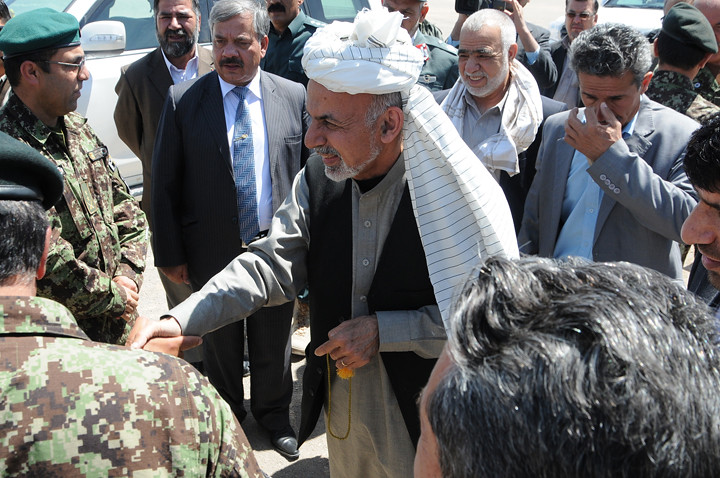 |
| Image: Flickr User - ResoluteSupportMedia |
By Muhammad Akbar Notezai
This month has seen yet another attempt at repairing fractious relationships.
Early this month, the fifth Heart of Asia-Istanbul Process Summit was opened by Prime Minister Nawaz Sharif and Afghan President Ashraf Ghani in Islamabad, Pakistan’s capital. Attending were the foreign ministers of ten countries – including all four of Pakistan’s neighbors. Chinese Foreign Minister Wang Yi was making his second visit to Islamabad this year, and was joined by Afghan Foreign Minister Salahuddin Rabbani, Indian Minister for External Affairs Sushma Swaraj and Iranian Foreign Minister Jawad Zarif.
Afghan President Ashraf Ghani had reportedly been reluctant to visit Islamabad given an upsurge in Taliban violence in Afghanistan and the derailing of the peace talks with the Afghan Taliban following the revelation of the death of Taliban leader Mullah Mohammad Omer, both developments severely straining bilateral ties.
However, according to Afghan media reports, China’s ambassador in Kabul conveyed a message from the Chinese leadership, advising Ghani to make the trip. The Pashtun leadership of Pakistan also visited Kabul to convince Ghani to attend the conference. When Ghani did arrive, it was to an impressively warm welcome. Islamabad-based analysts believe that both the political and military leaderships of Pakistan are now keen to improve ties with Kabul, although skeptics say that it is Beijing that has been robustly pushing Islamabad to amend ties with Kabul ever since the announcement of China’s $46 billion investment in Pakistan.
Farooq Sulehria, a senior Pakistani journalist based in Sweden, told The Diplomat, “Civilians have no control over foreign policy, in particular Afghanistan and India-related policies. They cannot issue a press statement on their own. It is a shame that civilians have capitulated so comprehensively. If capitulation is tantamount to similarity of views, we can say that they (political and military leadership) are on the same page. But ‘to be on same page,’ implies having equal strength. This is clearly not the case. Civilians utter the mundane statements they are told to say in public.”
Afghanistan’s intelligence chief Rahmatullah Nabil, a favorite of American officials and a staunch critic of his government’s policies toward Pakistan, resigned in apparent protest at Ghani’s efforts to achieve a rapprochement with Pakistan.
Read the full story at The Diplomat
